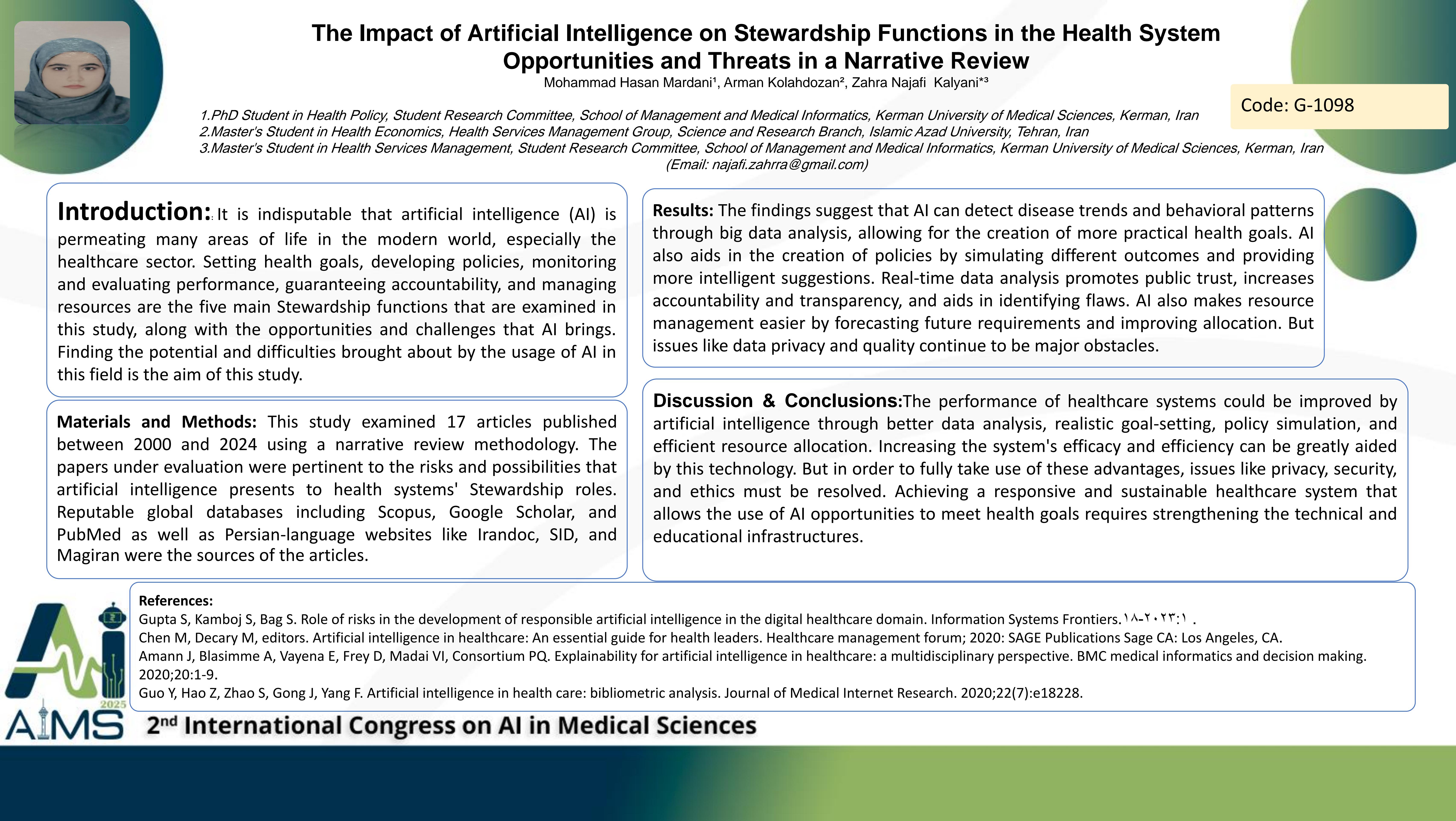The Impact of Artificial Intelligence on Stewardship Functions in the Health System: Opportunities and Threats in a Narrative Review
Code: G-1098
Authors: Mohammad Hasan Mardani, Arman Kolahdozan, Zahra Najafi Kalyani * ℗
Schedule: Not Scheduled!
Tag: Health Policy, Law & Management in AI
Download: Download Poster
Abstract:
Abstract
Background and aims: It is indisputable that artificial intelligence (AI) is permeating many areas of life in the modern world, especially the healthcare sector. Setting health goals, developing policies, monitoring and evaluating performance, guaranteeing accountability, and managing resources are the five main Stewardship functions that are examined in this study, along with the opportunities and challenges that AI brings. Finding the potential and difficulties brought about by the usage of AI in this field is the aim of this study. Methods: This study examined 17 articles published between 2000 and 2024 using a narrative review methodology. The papers under evaluation were pertinent to the risks and possibilities that artificial intelligence presents to health systems' Stewardship roles. Reputable global databases including Scopus, Google Scholar, and PubMed as well as Persian-language websites like Irandoc, SID, and Magiran were the sources of the articles. Results: The findings suggest that AI can detect disease trends and behavioral patterns through big data analysis, allowing for the creation of more practical health goals. AI also aids in the creation of policies by simulating different outcomes and providing more intelligent suggestions. Real-time data analysis promotes public trust, increases accountability and transparency, and aids in identifying flaws. AI also makes resource management easier by forecasting future requirements and improving allocation. But issues like data privacy and quality continue to be major obstacles. Conclusion: The performance of healthcare systems could be improved by artificial intelligence through better data analysis, realistic goal-setting, policy simulation, and efficient resource allocation. Increasing the system's efficacy and efficiency can be greatly aided by this technology. But in order to fully take use of these advantages, issues like privacy, security, and ethics must be resolved. Achieving a responsive and sustainable healthcare system that allows the use of AI opportunities to meet health goals requires strengthening the technical and educational infrastructures.
Keywords
Artificial Intelligence, Stewardship Functions, Opportunities
